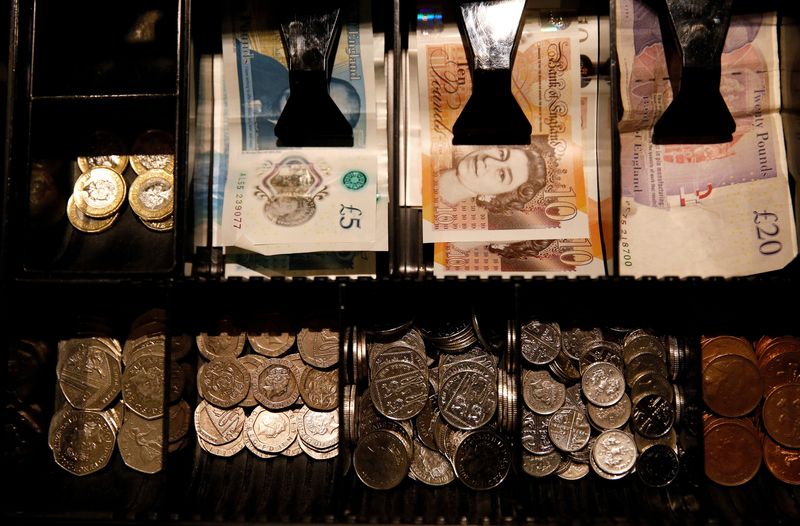By Elizabeth Howcroft
LONDON - Britain's pound rose slightly on Tuesday, benefiting from a resurgence of risk appetite across markets as the dollar eased from its recent 10-week highs.
At 1046 GMT, the pound was at $1.2769 against a weaker dollar, up 0.1% on the day, and 85.255 pence per euro.
Rising U.S. Treasury yields and unease over China have kept investors cautious in recent weeks, benefiting the safe-haven dollar, but this trajectory eased on Tuesday and risk-sensitive currencies gained instead, with the euro, Australian dollar and British pound all up.
Francesco Pesole, FX strategist at ING, said the pound's rise was mostly driven by global risk sentiment.
"We’re seeing European equities performing quite well today which is explaining why the pound is supported," he said.
British manufacturing output over the three months to August saw its biggest drop since September 2020, data on Tuesday showed.
Data also showed Britain recorded a smaller-than-expected budget deficit in July, giving finance minister Jeremy Hunt a bit of hope that he can cut taxes later this year before an election expected in 2024. Still, some economists warned that an economic slowdown in the coming months could limit Hunt's opportunity for pre-election giveaways.
Sterling rose 0.4% against the dollar last week - its best week since mid-July - after data including GDP and wage numbers came in stronger than predicted, which reinforced the expectations that the Bank of England (BoE) will continue to raise rates.
The pound has been supported this year by investors thinking that the BoE will continue its rate-hiking cycle for longer than the U.S. Federal Reserve and the European Central Bank.
On Aug. 3, the Bank of England (BoE) raised interest rates for the 14th time since late 2021 in an attempt to put a lid on persistent high inflation.
Markets are pricing in a, 82% chance of the BoE delivering a 25 basis-point rate hike at its next meeting on Sept. 21.

ING's Pesole said the pound is not directly impacted by worries about China's economy, so stands to gain.
"As long as China remains the main topic for markets it's probably not going to move a lot. The pound at the moment moves mostly on domestic data and on Bank of England rate expectations," he said.